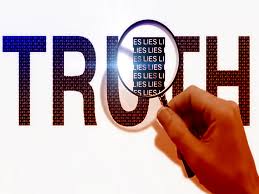
The Illusory Truth Effect is a phenomena we encounter every day whether we are aware of its influence over us or not. The effect happens through repetition, and is explained in an article by Psychology Today as "repeating a statement increases the belief that it’s true even when the statement is actually false"(Pierre, 2020). Such repetition of information increases the target audience's familiarity of the statement, and ultimately leads those people to believing what they are told. In a world where advertising bombards us on every media platform in existence, the Illusory Truth Effect is something everyone should be conscious of before putting their full faith into any piece of information posted on the internet.
Often unaware of the Illusory Effect's power over consumers, companies use the phenomena to their advantage as a marketing strategy. Catchy slogan's such as "Subway: Eat Fresh" or "M&M: Melts in Your Mouth" are just a few prominent examples of widely known slogans used by Subway and M&M because of their repetition on television commercials or other advertisements. Our learned association with Subway's ingredients being fresh, as we are told in their ad, has influenced thousands of consumers that their ingredients must be in fact, fresh. However, after being exposed in 2014, Subway announced they would be removing a certain chemical which was used in their bread. The same chemical used to make styrofoam, shoe soles, and yoga mats. Perhaps Subway isn't as fresh as they have claimed for years, but the slogan has been engrained in the minds of so many that it is hard for people even with prior knowledge of their faults to erase their slogan's permanent mark.
 |
❗For a closer look into Subway's exposure, check out the article below❗ https://abcnews.go.com/Health/subway-takes-chemical-sandwich-bread-protest/story?id=22373414#:~:text=Feb.,signatures%20in%20a%20petition%20drive. |
The Illusory Truth Effect is used in other aspects of our lives, especially in the realm of politics. Political campaigns are centered around a candidates appeal to the public, so their primary campaign platforms and slogans are repeated over the course of a campaign trail, to familiarize voters with their promises made to the people. By reaching targeted demographics of potential voters, slogans such as "Make America Great Again" and "Build Back Better" are repeated on social media platforms, at rallies, on merchandise, and in speeches to familiarize viewers with the platform. In the heat of political debates, those slogans are commonly used by candidates supporters who the slogans resonate with to defend their candidate of choice and provide reason for their support.


A more concerning aspect of the Illusory Truth Effect theory is that even when we hear information repeatedly from unreliable sources or false information altogether, we are still influenced into believing its truth because of our gained familiarity with the information. This may even cause us to discount new information, which may be true, which is also mentioned in the article above from Psychology Today. Even more shockingly, the Illusory truth effect impacts people most when someone perceives themselves to be knowledgeable of the topic OR even if the someone hearing the information has prior knowledge that that information is false. With this in mind, it is even more important for new information to spark skepticism in our thought process before placing trust into random online resources.
❗For further insight into the use of political propaganda using the Illusory Truth Effect, ❗ read this article from Psychology Today
https://www.psychologytoday.com/us/blog/psych-unseen/202001/illusory-truth-lies-and-political-propaganda-part-1
As you continue surrounding yourself with a tremendous amount of advertising and online influencing, I want to pose a challenge. Next time you see a claim made from an apposing viewpoint of your political beliefs, health ideologies, or even religious values, dig deeper into finding statistics or studies to provide more information before re-affirming your own thoughts. If we take that step, perhaps we will find more common ground amongst dividing topics in our nation. Maybe we will even discover for ourselves that we have fallen victim time and time again, to the clever sloganeering used by every successful marketing strategist in history.





